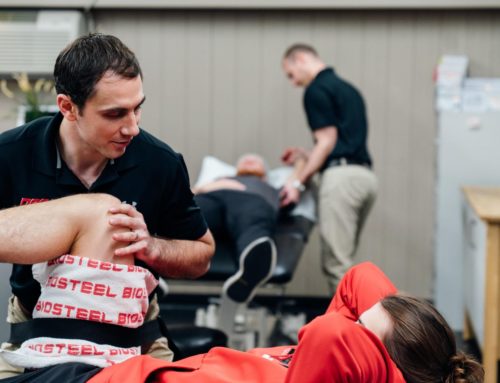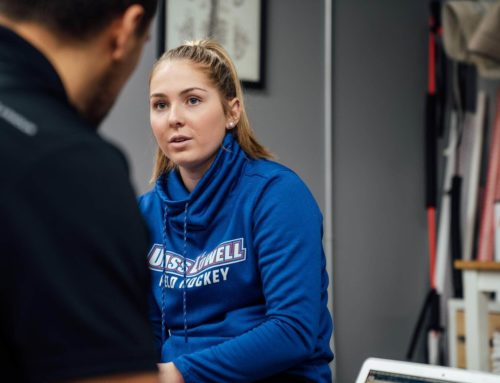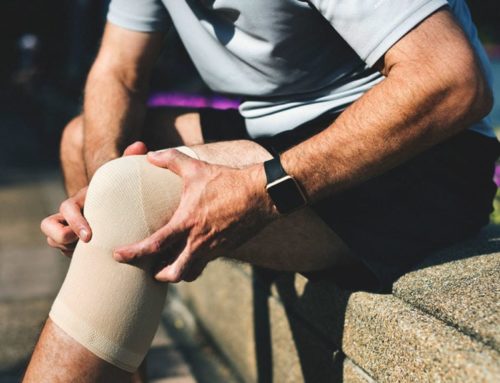As an athlete, showing up and ‘working hard’ is a given. Most athletes (especially the ones we work with at Depth!) don’t need to be told twice to give it work harder in the gym or at a practice. But what do we mean by ‘working smart?’
Paying attention to how you feel (both physically and mentally) is a major part of working smarter. Yes — you need to be able to push through fatigue and sometimes, that means putting in the work on days when you don’t necessarily feel like it. At the same time, you also need to be able to listen to your body and the cues it’s giving you that you may not be recovering properly. Your mood, level of fatigue, mental capacity to do school work, performance in practices and games, and overall appetite are all great indicators of your recovery level. Paying attention to these things, and managing them before they become detrimental, can be the difference between being a good athlete and a great athlete.
Three Focuses of Recovery
‘Recovery’ encompasses the things you do throughout the day to maximize your performance. If you find yourself feeling over-tired, sluggish, moody, or like you’re underperforming, here are a few things to pay attention to:
Sleep
Sleep is THE #1 most important factor when it comes to recovery. Student-athletes are no stranger to early morning and late night training sessions, sandwiched with classes, studying and other extracurricular commitments. Setting yourself up for success with a consistent sleep schedule and a routine to wind down before bed to ensure good sleep quality are a must. A big tip for sleep quality is getting rid of any blue light one hour before bed — that means turning off your phone and computer, and definitely not scrolling until you fall asleep!
Check out this blog on sleep for even more details on sleep habits.
Nutrition
If you were driving your car on an empty tank, it wouldn’t get too far. In fact, it would eventually stop altogether. Same thing goes for an athlete who is underfeeding — eventually, you can’t maintain the same work output if nothing is coming in. Having a loaded schedule where you may not be home for long stretches of time, planning ahead to bring snacks and meals with you everywhere you go is critical! Being prepared with quick and easily portable things like granola bars, protein bites, and fruit pouches are a great way to make sure you’re never feeling hungry and you have the fuel you need in your tank throughout the day. Aim for at least 3 good meals and 3 snacks a day.
Underfueling is detrimental to all athletes, but is especially prevalent with female athletes due to pressures to not only perform in sports, but to also maintain what society has labeled as an ‘acceptable’ aesthetic. Just remember: you need more fuel than the average person during the day — even on days when you aren’t training. Those days are especially important to fuel properly, as your body is in full recovery mode, repairing your muscles from the previous days’ work and preparing it for the next days ahead.
Stress Management & Mindset
‘Stress’ doesn’t necessarily mean something is bad or negative; we need stressors to adapt. Training at a high intensity puts your body under stress, but it’s a necessary stress in order to improve and get better. What we need to get better at identifying are the other stressors, and how we can make them work FOR US instead of AGAINST US. Our bodies treat all stressors in relatively the same way. Planning ahead of time to schedule meals, time to do homework, go to training and practice, hang out with friends, and even time to do absolutely nothing can help minimize the anxiety that comes with having such a full schedule.
This also circles back to adequate sleep and fuelling — if those two are taken care of, we are generally better prepared to handle the smaller stressors (like running late for school, or if your siblings are being extra annoying on that particular day). Taking care of the big things automatically takes care of the small things. Identifying your own stressors and the best coping mechanisms to deal with them takes time and effort, but it all pays off when you find yourself feeling overwhelmed and now have the tools to cope with it appropriately. Sometimes, it can be as simple as having an intention for the day and writing it down on good, old fashioned pen and paper as something to come back to when you need to feel more grounded, or taking three deep breaths in an intense moment.
At the end of the day, you can only train as hard as you recover. Taking care of these three foundational building blocks will allow you to perform with the ease and intensity that allows you to thrive, and puts you in a situation where you’re ready to perform at your best physically and mentally is key to reaching an elite level in your sport.
Want to learn more about maximizing your training, performance, and recovery? Email me at [email protected]!
Written by: Bronywn Stevens, Lead Female Athlete Coach, Trainer






